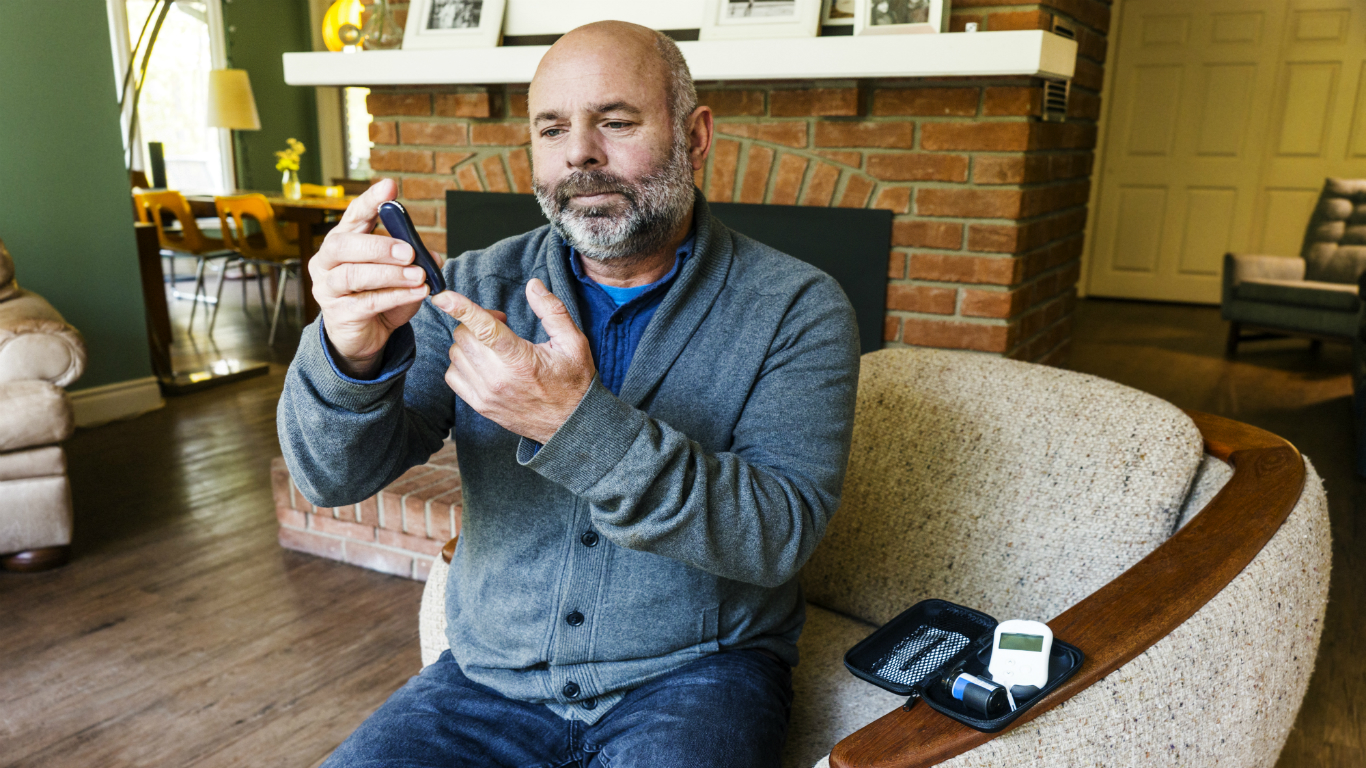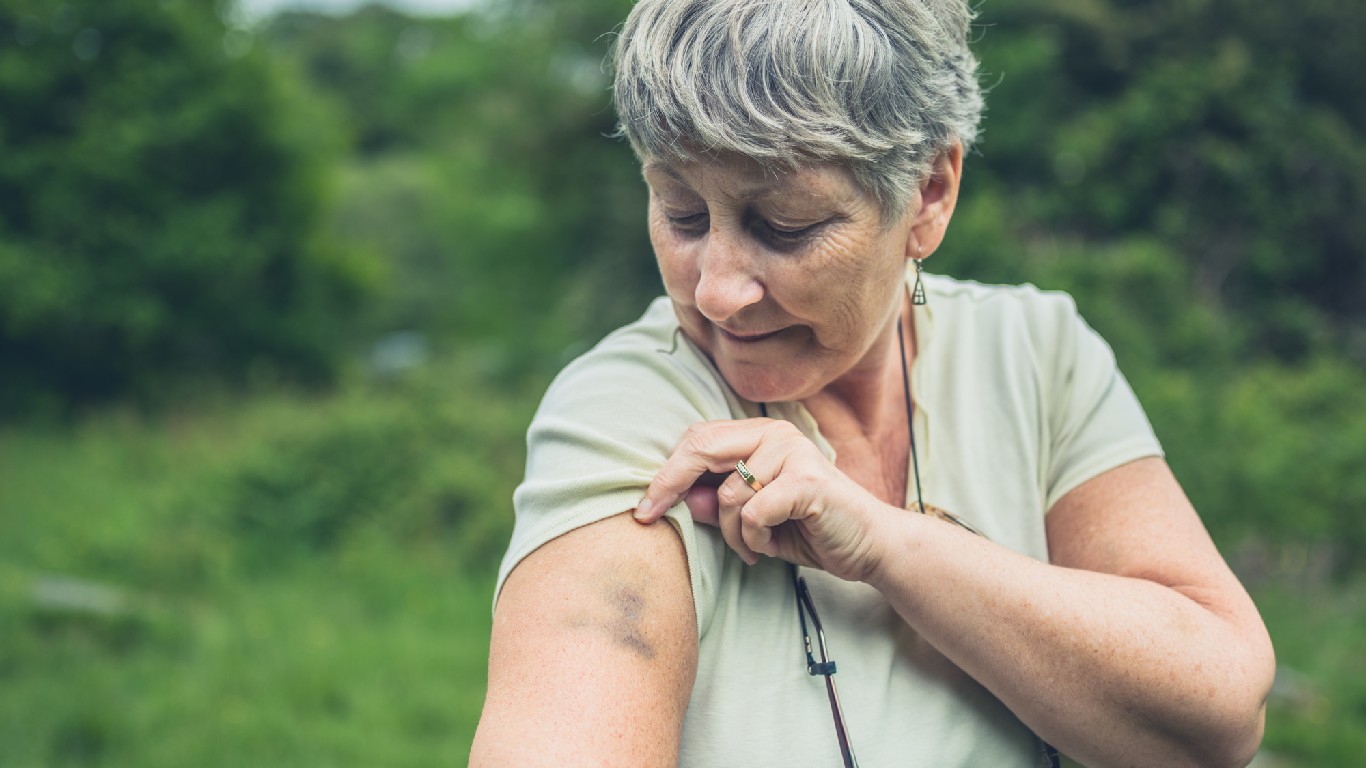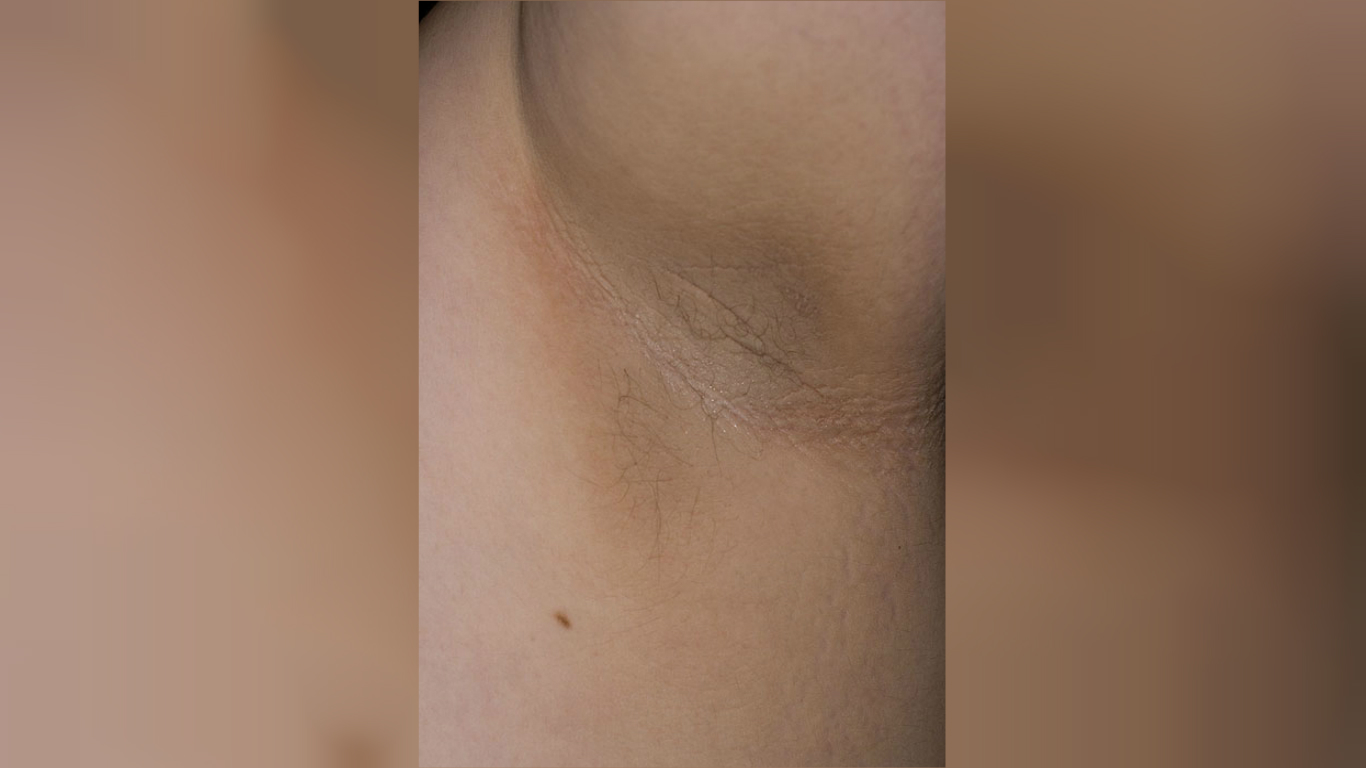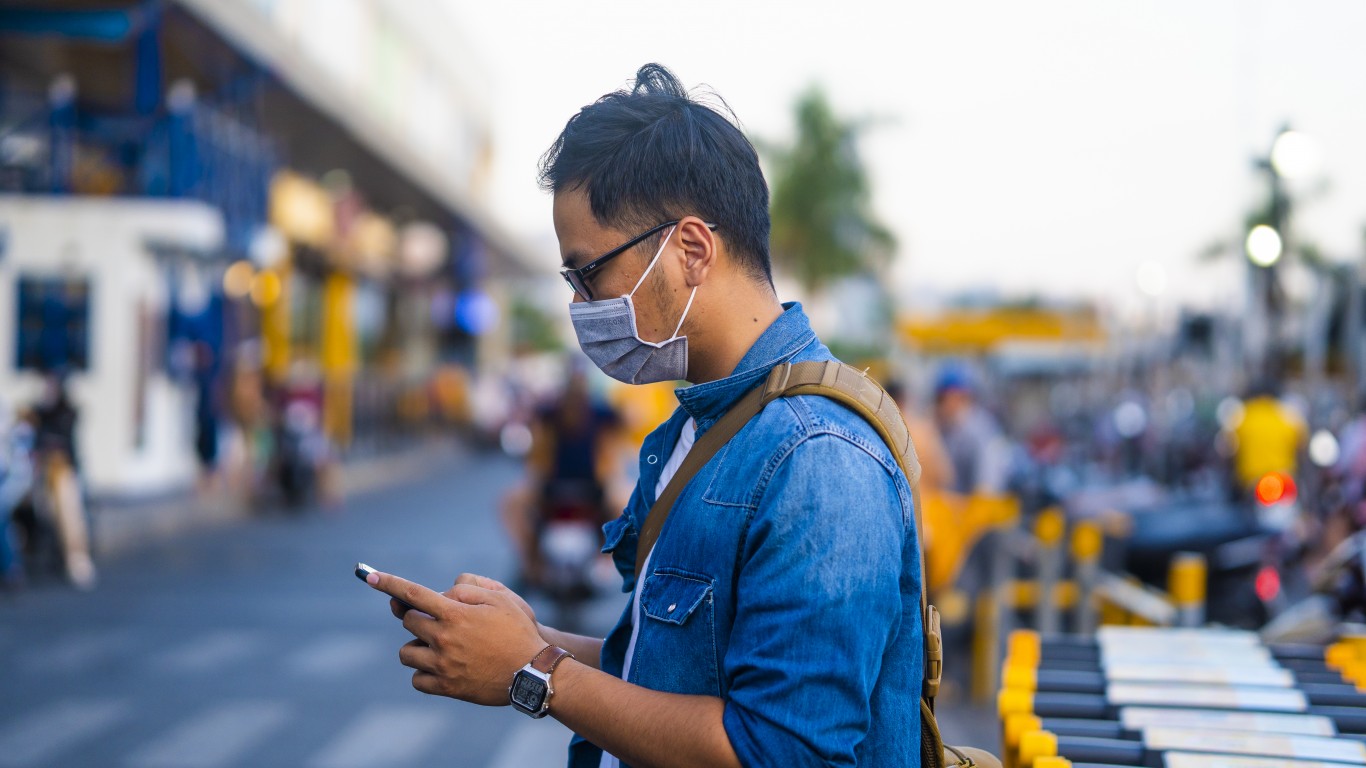
About one in 10 Americans, or 34.2 million people, live with diabetes, according to the Centers for Disease Control and Prevention data through 2018. Other findings from the data show that one in three people in the country have prediabetes, higher than normal blood sugar level, which can turn into diabetes if left untreated, and that new cases have been skyrocketing among young people.
Some of the most severe diabetes complications include ketoacidosis, which can be fatal, kidney disease, amputation, and blindness. And there is a new risk associated with the disease.
24/7 Tempo reviewed multiple studies and reports by independent health organizations, such as the American Diabetes Association, and JDRF, a leading Type 1 diabetes research group, to compile a list of the 10 biggest warning signs of diabetes.
There are three types of diabetes. People with Type 1 diabetes, about 5%-10% of those with the disease, make very little or no insulin — a hormone made by the pancreas that helps regulate blood sugar levels in the body by allowing cells to store the broken down sugars, or glucose (the body’s energy source). They must take insulin every day to live. People with Type 2 diabetes don’t use insulin well. Their body is not capable of regulating blood sugar levels. The third type, gestational diabetes, develops in pregnant women. Blood sugar levels usually return to normal after childbirth.
Some diseases, including diabetes, have a particular odor and vague symptoms that seem completely normal daily activities — like drinking coffee and eating cookies. Here are 18 ordinary habits that can be signs of serious health problems.
Click here to read about the 10 warning signs you may have diabetes

1. Frequent urination and increased thirst
Excessive thirst is a classic symptom of diabetes. The reason is the extra sugar in your blood. The kidneys have to work extra hard to filter the glucose. Whatever they can’t handle gets eliminated into your urine, taking with it fluids from other muscle tissues, leaving you dehydrated, constantly thirsty, and frequently running to the bathroom as a result.
[in-text-ad]

2. Numbness and tingling in hands and feet
Common symptoms of diabetic neuropathy are pain and numbness in the feet and hands (peripheral neuropathy). High blood sugar and fat levels damage the nerves and the blood vessels that bring nutrients to them. Your feet, hands, legs and arms may also feel weak or like they are burning. Up to 50% of people with diabetes have peripheral neuropathy.

3. Dry mouth
Xerostomia, or dry mouth, may be a result of high blood sugar levels. Dehydration is another cause. A dry mouth increases the risk of cavities because there’s less saliva to wash away germs. This is one reason why gum disease is one of the most common problems affecting diabetics.

4. Slow healing cuts and bruises
High levels of sugar in the blood stiffen the blood vessels, decreasing circulation. When, as a result, nutrients and oxygen can’t get to the cells, cuts and other wounds can’t repair or heal. Such injuries in the feet are especially risky because they are not always detected in time. Foot ulcers are a leading cause of amputations among diabetics, affecting 15% of them.
[in-text-ad-2]

5. Itchy and very dry skin
Itchy and often dry skin are caused by the poor blood circulation resulting from diabetes. The most affected areas are usually the lower parts of the legs. The medical term for the itchy and painful, reddish or brown patches on your skin is necrobiosis lipodica. Avoid hot showers, which can wash away the natural oils of the skin, further damaging it.

6. Feeling very hungry and sudden weight loss
People with diabetes do not properly process the sugar from the food they eat due to insulin resistance (Type 2 diabetes) or insufficiency (Type 1 diabetes). As a result, they feel hungry even after eating, a condition called hyperphagia.
[in-text-ad]

7. Blurry vision
Chronically high blood sugar damages the blood vessels in the retina, the part of the eye that detects light. Diabetic retinopathy can cause blood vessels in the retina to leak or bleed, impacting vision. If left untreated, abnormal blood vessels increase, possibly leading to scarring, cell loss, and blindness.

8. Yeast infections
Research shows a significant link between yeast infections and hyperglycemia (excess glucose in the bloodstream) in women with both Type 1 and Type 2 diabetes. If there is too much sugar in the body it becomes a breeding ground for yeast, which may lead to an infection.

9. Chronic fatigue
Research shows that chronic fatigue is highly prevalent in people with Type 1 diabetes. Lack of insulin may change the energy source from carbs to fat. When glycogen (energy) stores are exhausted, the conversion into energy slows down, causing fatigue. Low blood sugar is also a cause of fatigue because the body doesn’t have enough fuel.
[in-text-ad-2]
10. Patches of darkening skin
High levels of insulin in the blood — when the pancreas makes the hormone, but the body doesn’t use it properly, causing a buildup in the bloodstream — can lead to epidermal skin cells reproducing quickly. Areas around the neck, armpits, and groin become brown and even sometimes slightly raised. This can also happen on the hands, elbows, and knees. The condition is called acanthosis nigricans.
It’s Your Money, Your Future—Own It (sponsor)
Are you ahead, or behind on retirement? For families with more than $500,000 saved for retirement, finding a financial advisor who puts your interest first can be the difference, and today it’s easier than ever. SmartAsset’s free tool matches you with up to three fiduciary financial advisors who serve your area in minutes. Each advisor has been carefully vetted and must act in your best interests. Start your search now.
If you’ve saved and built a substantial nest egg for you and your family, don’t delay; get started right here and help your retirement dreams become a retirement reality.
Thank you for reading! Have some feedback for us?
Contact the 24/7 Wall St. editorial team.




